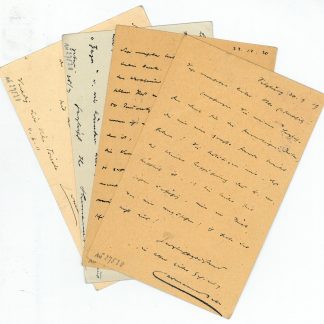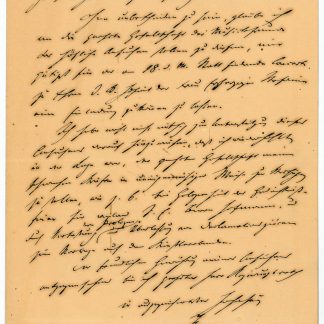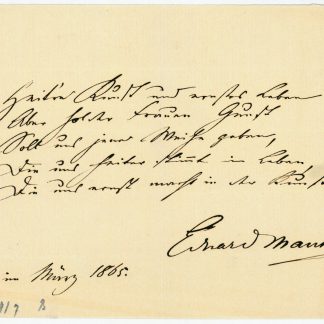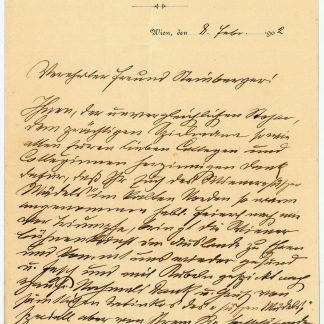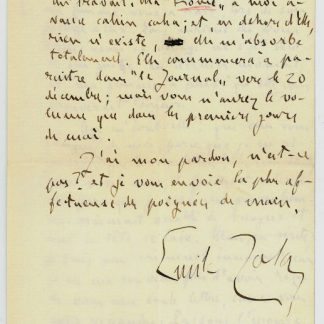Autograph letter signed.
4to (210:133 mm). 2 pp.
€ 8.500,00
In French, to an unidentified friend: "[...] It seems that my wife missed you when she passed through Aix. We should have written you; but this voyage wasn t decided on until right at the last moment; and my wife thought she would always find you. What does she write me? That you complain about me because I am not answering your letters? If that were so I would have to be excused, because I am truly a poor man, burdened down with work and whose head is getting impassive. But truly, I am an innocent criminal, for I don't recall having received a single letter from you that I didn't answer. Let's pass the...sponge, shall we? My wife, who is impassioned of Rome, had a crazy desire to return there. [As for] me, I stayed [here] at my work. My Rome is tough going for me; and besides that, nothing exists which can totally absorb me. It will start appearing in The Journal toward December 20th; but you won't have the volume [the work in book form] until the first days of May. I have my pardon, don't I? And I send you the most affectionate of presses of the hand".
Won over to social humanitarianism toward the latter part of his life, Zola wrote the cycle, "Les Trois Villes", which no longer reflected a naturalistic perspective. When Zola wrote this letter, he had already published "Lourdes", the first novel in the trilogy and was still working on its sequel, "Rome", which would later be followed by "Paris". He had, the year before, visited the Italian capital to research for the novel, and had returned to Paris with voluminous notes about what he saw and heard. Madame Zola, who had accompanied him on this excursion to Italy, took more pleasure in the trip than he did. She found it easier here than in France to bask in his reflected glory, and she could imagine that Roman society was ignorant of the double life he was leading, whereas she was sure that all her friends in Paris knew. After this first visit she returned regularly on her own for several years running; it was an arrangement that allowed the estranged couple a semi-separation acceptable according to the conventions of the time.


